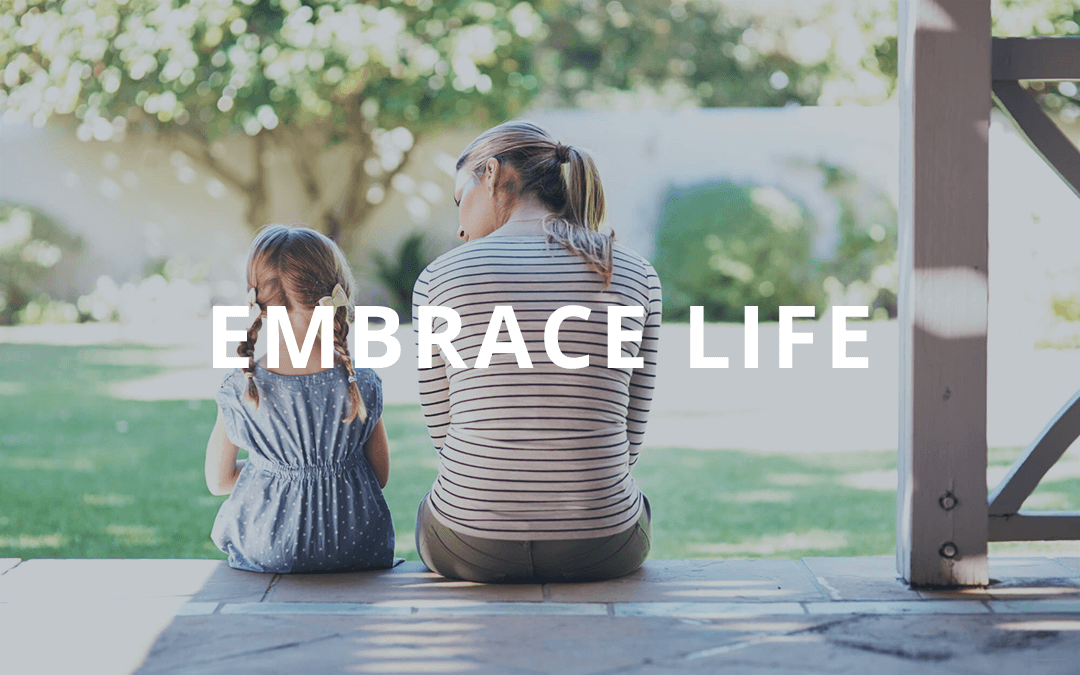LETTING GO
Maybe you recently registered your child for next year’s kindergarten class or college. Or you see their June wedding invitations and can’t believe your baby is growing up so fast. Oh, then they move out of state. They have their own children. Suddenly, they’re having an over-the-hill party, and you’re like “What?” I’m not even over the hill yet! Am I? Reality hits and you have flashbacks of your own first day at school, graduation, leaving your parents’ home. And now you know how they felt.
“Hold on,” you say. “I’m just now registering my Kindergartener.” Snap the picture and get the hugs. Enjoy this time while you can. Because you are already asking, “Where did the time go?”
We’ve looked at the problems of helping our children too much. (See Butterfly Wings)—how too much help cripples them. We don’t want to enable our children. We want to nurture them and encourage independence at various stages in their lives. We parents tend to like our children dependent on us more than we realize. It hurts to let go. It hurts both them and us. When our kids turn into teens, we struggle with their independence. When they are off to college and out of our sight, we are not in control any more. (What made us think we ever were?) We lost control years before, only now it does no good to wait up for them. They aren’t coming home late; they aren’t coming home at all. We worry about their safety, their drinking habits, if they eat right, what kind of friends they have. Will they drive while intoxicated or drive wild?
Will they take off to Mexico—like mine did—traveling twenty-three hours into the interior on a bus with armed guards? Maybe sleep outside in a hammock on a tiny Costa Rica island where a boat dropped them off and left them? Let me share a story.
One summer, when he was a teenager, my son worked in the maintenance department of a nursing home. He met an adventurous elderly man in a wheel chair named Skippy. Skippy and Micheal became friends and Skippy shared some of his adventures with Micheal. Real or imagined we don’t know. But Micheal says he realized then, that if at the end of life, he found himself in a wheel chair in an old folks’ home, he wanted lots of memories to share that would sustain him through his last days.
Micheal has been the most adventuresome guy I have ever known. In college he spent many summer vacations and weekends climbing and jumping off cliff’s, spelunking (exploring caves), Scooba diving, and underwater cave exploration. As I said earlier, he traveled on a bus into Mexico with friends—him being the only Spanish speaking one among them. They wanted to experience the real culture, not the tourist areas. So, they took a bus twenty-three hours from the US border into the interior and enjoyed the local markets and cuisine. This was only a taste of international travel for Micheal. For college graduation, he and a friend, flew to Panama City, Panama and hiked through the jungle to Costa Rica. There, they hired a boat to take them to a small island where they were left overnight with an old fisherman. The self-sufficient old man lived on the island alone. He cooked turtle soup on an open fire for them and they slept outside in hammocks. The boat returned for them the next day.
Of course, it was much later when I found out about these excursions, but even hearing about it after the fact, my heart stopped. What else would this crazy son of mine do? Torn between being happy and proud of him, to being worried sick, I had to let him go. Let him be an adult and trust he knew how.
Since then, Micheal has logged many experiences. His goal was to fill his Passport before he turned forty, and he has. He’s fished for salmon in Alaska, and been to many countries, including on African safari twice, and hiking and Ice fishing in Iceland. His friends jokingly call him “The most interesting man in the world”.
No matter how old he is, I still worry. Once our kids leave home, we can’t hold their hand as they cross the street anymore. I have friends who panicked when their children turned eighteen and headed off to college. We must prepare them to be adults before they are grown. If we haven’t taught them to look both ways before they reach eighteen, we are too late. If we teach them what we know about being safe and making good judgments while they are young, then when they leave home, all there is to do is pray for them as we release them into God’s hands. Remember, He can see them when we can’t. He sees Mexico, Costa Rica, Africa, and down the street. He not only sees them; He’s with them. He can intervene when we can’t.
At some point, our children grow up and leave home. Leave us. Okay, there are advantages to the empty nest. Less laundry, more food and it’s quieter. The quiet. Is that really an advantage? Having an empty nest can be devastating. Look now at your time. How do you spend it away from your children? Are you investing in yourself? In your own future? What will you do without them? Go back to school? Change careers? Start or expand a new hobby? Get involved in the community? Don’t neglect to look at your future with anticipation. Find excitement in planning for new activities. Grant it, not all children leave home at eighteen. Some stay through their twenties. Which could be even worse. An empty nest can find you in a depressing slump. That is why we need not only to be sure our children are prepared for the day they move out, but that we are prepared as well.
Are you prepared? Do you have a story to share? Remember, where ever you are in life, you are at the right place when you visit my website and read my blog. Come on back and share a slice of life with me.
Don’t forget to subscribe.

